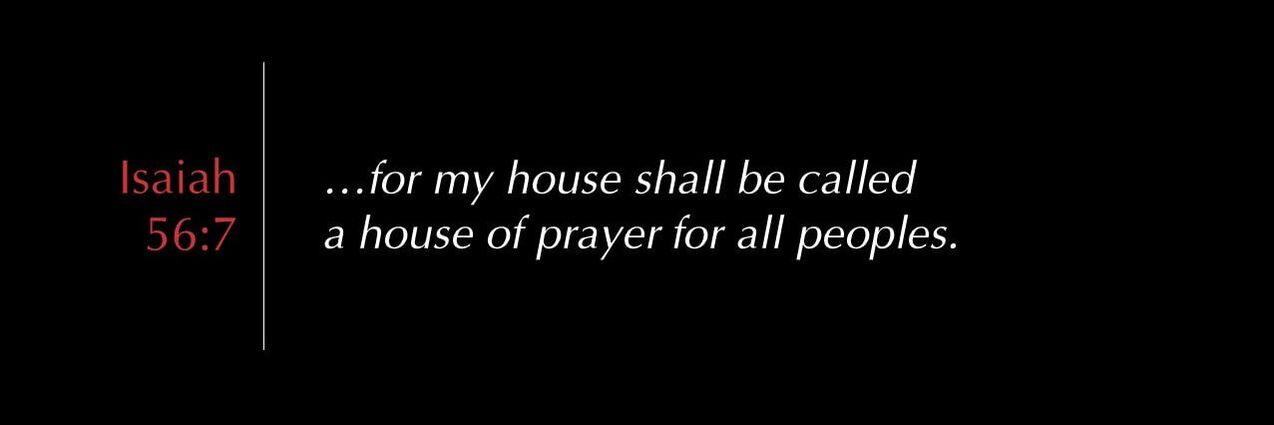Scott AndersonIsaiah 56:1, 6-8 † Psalm 67 † Romans 11:1-5, 29-32 † Matthew 15:21-28 *A video form of this sermon can be found here or you can see the entire liturgy here. Is this boy happy? And how about this one? I wish I could be with you in person to hear your responses and engage with you. Someday we will be there again. In the meantime, note your response. How did you answer my question in both slides? What did you notice? Did you miss anything? I know I did the first time I viewed these. Look again. Pay attention to the context. Which boy did you focus on when I asked the question? What did you notice about the others? Now compare it to the second image. What do you see as you attend to the whole picture? If you keyed on the child in the front with the black jersey, what do you notice about the children in the background. Does this change your answer at all? I have always been amazed by this woman Jesus encounters from Cana, although I don’t know that I would have responded especially well to her in the moment. The disciples certainly didn’t. She shouts and persists, asking for mercy for her daughter. And the disciples don’t know what to do, so they are focused on sending her away, ridding themselves of the trouble they do not know how to address: “Send her away. She keeps shouting after us!” We can imagine how they might feel… And they probably had the power to make it happen if they chose. Or certainly Jesus would have. But he didn’t. He gets that right. If you think about it, privacy is a commodity. If I don’t like a situation, assuming I have the means, I can usually get away from it. If I don’t like what someone is doing, or if they are not happy with what I’m doing, I can usually withdraw myself from the situation. I have places I can go where all my needs are met and I can be comfortable. This is a form of privilege that not everyone has. Think of it from another angle. If you can afford to be yourself everywhere, you are at the top position of privilege. Let me offer just a few blunt comparisons. Consider:
There are, of course, layers of privilege. If you can afford to be yourself everywhere, you are at the top position of privilege. On the other end of the spectrum we find this Canaanite woman who has no choice but to engage with this system that is dead-set against her. While I don’t need to understand even my own place in the culture in which I live and move and have my being, while I can swim in the ocean of culture and not even be aware of the water, her persistence in the story is not just a powerful virtue she presents, it is a matter of life and death. It’s a matter of survival. Here she is, a woman with no power apart of a people with no power. She is dependent on others to get what she needs. She has to be clever to walk the narrow line between challenging, but not being offensive to the point of shutting off the resource. She must understand not only where she fits and what the rules of engagement are. She must understand where everyone else fits as well. She must understand the culture of those in power, the rules of the system better than they do. Truthfully, it is hard to argue that Jesus does any better at the beginning of the story. After yet another unproductive encounter with the Pharisees, he’s just talked about how its what comes out of the mouth that reveals that defiles you, that reveals what’s in the heart. Then he calls the woman a dog. What’s remarkable, though, is that he listens to what comes out of his own mouth. He hears his own prejudice and his own privilege and he confronts it. And let’s be honest, it is never possible to talk about privilege without striking a nerve. He engages with the woman against all the cultural norms that press against him as well as her. Here is a miracle, a thing of God who, as Isaiah reminds us, gathers outsiders and insiders alike.
Perhaps there is an invitation here to become students ourselves, to begin to learn how this culture of white supremacy so deeply and thoroughly engineered toward the enrichment and enjoyment of some at the expense of others actually serves none of us well. If we really want to engage the world truthfully, and our place in it, we will ask serious questions about the ways race, ethnicity, gender, class, and sexuality affect human experience. To look into the life of another with empathy and openness is the beginning of salvation. Because at the center of it all is a woman whose tenacity and clarity grown from necessity risks it all for the sake of another. And at the very heart of the story is a child who is healed. Amen.
0 Comments
Leave a Reply. |
St. Andrew SermonsCategories
All
|




 RSS Feed
RSS Feed